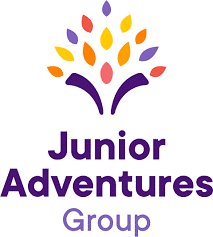Intent
At St. Joseph’s, our intention for science is to support children in exploring and discovering the world around them in order for them to develop a deeper understanding of the world in which we live. We strive to empower children with the scientific knowledge and skills that will give them a solid foundation from which to develop themselves as scientists in our school, at secondary level and hopefully beyond. We aim for our children to be scientifically literate, used to using and applying scientific vocabulary in their verbal and written responses in science and to be familiar with the skills that scientists use when conducting practical enquiries.
Implementation
We follow the National Curriculum programmes of study for science and our children develop their knowledge and skills in a spiral approach, as children revisit and build upon previous learning. The subject co-ordinator is responsible for the planning of science and ensures that teachers are fully equipped with the necessary teaching structure, activities and resources.
To support recall of prior learning, children engage in retrieval practice in which teachers ask questions relating to learning in a previous year group or unit within the current year group. Children are also exposed to core vocabulary relating to the topic at the start of each lesson, regardless of whether they will use the vocabulary in that particular lesson.
All plans from Year 1 through to Year 6 have both knowledge and working scientifically objectives (where appropriate) assigned to lessons and these are framed within a question for each lesson to make the objectives tangible for children. Likewise, we provide as many practical opportunities as possible for children to explore scientific concepts and to conduct scientific enquiry. As such, children are beginning to focus on one working scientifically objective per practical enquiry in which they are taught about a specific skill. Furthermore, activities have been planned to make scientific processes and more concepts more tangible to promote understanding.
Children’s work is recorded in science exercise books, with the use of diagrams, data tables, data charts and photographs to communicate understanding and enquiry. Learning activities are also carefully selected to ensure that learning is accessible to all and are appropriately differentiated. As such, oracy is increasingly being utilised to enable children to express their ideas, develop their understanding through discussion and clarify misconceptions where necessary.
Impact
As a result, our children enjoy and are enthusiastic about science in our school. They like finding out about the world around them, enjoy practical activities and having opportunities to investigate concepts in their own way and also presenting their findings verbally. They are able to explain the phenomena they experience and the concepts they encounter, grounding their ideas in scientific thinking. This is epitomised by the impressive ideas, often very original thinking and application of scientific concepts and vocabulary which children in Years 4 to 6 show in creating investigations to take part in our annual school science fair. There is a clear progression of children’s work, showing a range of topics and evidence of the curriculum coverage for all science units. Standards in science at the end of the Key Stages are good.

.jpg)

.jpg)

.png)
